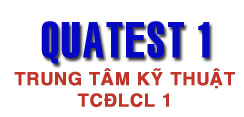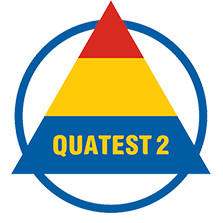Greenhouse Gas (GHG) Reporting Standard: A Gap in the Development of Vietnam Carbon Market
Post date: Friday, Apr 19, 2024 | 18:26 - View count: 884
Article by Associate Professor Lien Duong, Curtin University-Australia and Vice President, VASEA| ESG – Vietnamese and Australian Scholars and Experts Association
The establishment of the Vietnam carbon market serves as a crucial tool for the government’s efforts to reduce the country’s emissions in alignment with the Paris Agreement. Government Decree 06/2022/ND-CP has outlined a roadmap for establishing the domestic carbon market by 2027. Joint responsibility for this endeavour falls upon the Ministry of Natural Resources and Environment (MONRE) and the Ministry of Finance (MOF). Vietnam plans to initiate a pilot carbon credit trading platform in 2025. However, creating a carbon market and implementing an emissions trading scheme (ETS) present many significant challenges. Among these challenges, ensuring the quality and accuracy of greenhouse gas (GHG) data emerges a concern.
For countries worldwide, including Australia and the EU, there are legislative frameworks and sustainability standards encompassing GHG emissions and climate-related disclosures. Vietnam possesses the necessary legislative framework, exemplified by Government Decree 06/2022/ND-CP, mandating certain companies to report their GHG emissions. However, the absence of a sustainability standard undermines the quality of GHG data. It is imperative to establish a standard that delineates reporting requirements for GHG emissions. This standard could draw from international benchmarks such as the Task Force on Climate-related Financial Disclosures (TCFD), the International Sustainability Standards Board (ISSB), the Global Reporting Initiative (GRI), or the Sustainability Accounting Standards Board (SASB). Additionally, the standard should specify the depth of GHG emissions reporting required and determine whether all scopes of emissions (Scope 1, 2, or 3) should be included, akin to the phased-in approach adopted in Australia. Vietnam has the option to adopt an international standard outright or customize it to suit the country’s unique circumstances.

In Australia, the Treasury Laws Amendment (Financial Market Infrastructure and Other Measures) Bill 2024 was introduced in the House of Representatives on March 27, 2024. Once it passes through both the Lower and Upper Houses, selected Australian companies will be required to report their GHG emissions starting from January 1, 2025. This will be implemented in a phased approach, with Scope 1 and 2 reporting becoming mandatory immediately, followed by the gradual inclusion of Scope 3 emissions, one year after reporting Scope 1 and 2.
The Australian government has authorised the Australian Accounting Standards Board (AASB) to formulate a sustainability standard for Australian corporations. Building upon the principles outlined by the Task Force on Climate-related Financial Disclosures (TCFD), the AASB is crafting a framework that extends beyond the scope of the TCFD guidelines. Currently, as of April 2024, the AASB sustainability substandard is in the consultation phase of this development process.

|
Bio: Dr Lien Duong is a Chartered Accountant and an Associate Professor at the School of Accounting, Economics and Finance, Curtin University, Australia (https://staffportal.curtin.edu.au/staff/profile/view/lien-duong-85b855b5/). She also serves as the Vice President of the Vietnamese and Australian Scholars and Experts Association (https://vasea.org.au/about-vasea/), overseeing its ESG (Environmental, Social and Governance) and Sustainability portfolio. Associate Professor Duong has successfully secured over $AU2.4 million in competitive funding from both Australian government and industry bodies for capacity training projects in greenhouse gas reporting, climate change policies, carbon markets, and energy transition. Her recent projects have targeted to Vietnamese government officials from 16 ministries and government organisations, including the Ministry of Natural Resources and Environment, Ministry of Finance, Ministry of Industry and Trade, Ministry of Agriculture and Rural Development, and Vietnam Electricity. |
Lien Duong




















